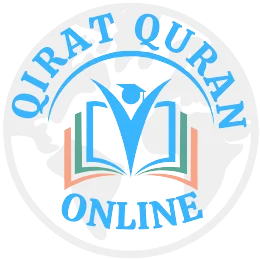
A Comprehensive Guide to Muslim Holidays
Introduction
Holidays are important occasions for social gatherings and spiritual reflection, as well as commemoration of important moments in Islamic history that touch millions around the world Through exposure to the diverse fabric of Muslim culture and history , this conference creates a sense of unity among Muslims around the world. In this post, we will discuss major holidays.
Eid al-Fitr
As the “Festival of Breaking the Fast,” Eid al-Fitr is one of the most eagerly awaited holidays. The holy month of Ramadan, during which Muslims fast throughout the world, has come to a close. Eid al-Fitr is included in this article’s focus keyword, “Muslim holidays,” because it is a crucial component of these celebrations.
Rituals and Celebrations spiritual meditation
Muslims begin their day with a special prayer called “Salat al-Eid” on this auspicious day. This collective prayer takes place in churches, public places, or designated prayer areas. This is an opportunity for communities to unite in prayer and solidarity, exemplifying the core values of the Islamic Brotherhood.
Origins and Significance
Following the end of Ramadan, on the first day of Shawwal, the tenth month of the Islamic lunar calendar, Eid al-Fitr is observed. This month-long intense fast culminates on this day of celebration and thanksgiving. Muslims thank Allah for giving them the strength and self-control to fast and pray during Ramadan.
Eid al-Adha
The “Festival of Sacrifice,” also known as Eid al-Adha, is equally important to Muslims. It honors the Prophet Ibrahim’s (Abraham’s) readiness to offer his son as a sacrifice in compliance with Allah’s instruction.
Rituals and Celebrations
Ritual of Eid al-Adha is the offering of an animal sacrifice, such as a sheep, goat, or cow, symbolizing the sacrifice Ibrahim was willing to make. To highlight the value of giving to the less fortunate and community support, some of the meat is given away to those in need.
Origins and Significance
Eid al-Adha occurs at the end of the annual Hajj pilgrimage in Mecca, on the tenth day of Dhu al-Hijjah, the twelfth month of the Islamic lunar calendar. It reminds us of the virtues of sacrificing for others and being devoted to and submissive to Allah.
Muslim holidays 2023
In the continuous Hijri year of 1444 AH, there are 6 conspicuous Islamic occasions the Muslim people group anticipates with convivial fervor. From the outset of the holiest month of Ramadan on 22 Walk, 2023, that very month likewise notices Nuzul-al Qur’an and Laylat al-Qadr on 7-eighth and eighteenth April separately. As the sacrosanct month of Ramadan finishes up, there will be merriments as Muslims observe Eid ul-Fitr on second May 2023.
Eid Muslim holidays
The two most generally observed Islamic holidays are Eid al-Fitr, also known as the “Festival of Breaking Fast,” and Eid al-Adha, also known as the “Festival of Sacrifice.” The month of Ramadan, which is dedicated to fasting and introspection, comes to a conclusion on Eid al-Fitr. Prophet Abraham’s willingness to offer his son as a sacrifice is honored on Eid al-Adha. Both entail giving alms, feasting, and praying.
Muslim holidays december 2023
There weren’t any major holidays observed in December 2023. Islamic holidays follow the lunar calendar, which doesn’t align perfectly with the Gregorian calendar. So, Holidays fall on different Gregorian dates each year.
Major muslim holidays
Besides Eid al-Fitr and Eid al-Adha, other major holidays.
Muslim holidays june 2023
There weren’t any major holidays observed in June 2023. Refer to the section on “Major Holidays” for a general idea of when these holidays typically occur.
Important Muslim holidays
The significance of a Muslim festival might differ based on the person and their religious beliefs. All of the previously stated holidays—Eid al-Fitr, Eid al-Adha, Ramadan, and Hajj—are nevertheless widely observed.
What are the Muslim holidays ?
Eid al-Fitr (“Festival of Breaking Fast”): Celebrates the end of Ramadan, a month of fasting and spiritual reflection.
Eid al-Adha, or the “feast of sacrifice,” commemorates the prophet Abraham’s willingness to offer his son as a sacrifice.
Ramadan: A holy month devoted to fasting, prayer, reflection, and almsgiving.
All Muslim holidays
There are many holidays and observances throughout the Islamic calendar year. Some are widely celebrated, Eid al-Adha, Eid al-Fitr, Ramadan, Laylat al-Qadr, Hajj, Muharram.
Most important Muslim holidays
Eid al-Fitr and Eid al-Adha are widely considered the most important holidays due to their universal themes and celebrations. However, Ramadan and Hajj also hold immense importance for Muslims.
What are Muslim holidays ?
Holidays honor important occasions in Islamic history and customs. They are occasions for introspection, prayer, get-togethers with the community, and charitable deeds.
Biggest Muslim holidays
In terms of sheer number of participants, Eid al-Fitr and Eid al-Adha are the biggest holidays. Millions of Muslims worldwide celebrate these occasions.
Conclusion
Muslims have a great love for Islamic holidays, which blend spirituality, ritual and communal celebration. Eid al-Fitr and Eid al-Adha are occasions of thanksgiving and sacrifice. These celebrations reflect the principles that guide the lives of millions of people and the diversity and unity of the global Muslim community. Muslims gather around the world to celebrate major festivals to strengthen ties with those who share their faith, culture and others.
FAQS:
Muslims celebrate two important holidays: Eid al-Fitr, Eid al-Adha and Eid al-Adha. These words commemorate the completion of Hajj and Ramadan.
The “Festival of Sacrifice,” also known as Eid al-Adha, is frequently regarded as the most important Muslim holiday.
Muslims participate in group prayers on these important days, give to the poor (Zakat al-Fitr), exchange presents, and have feasts with loved ones.
Share on >>
